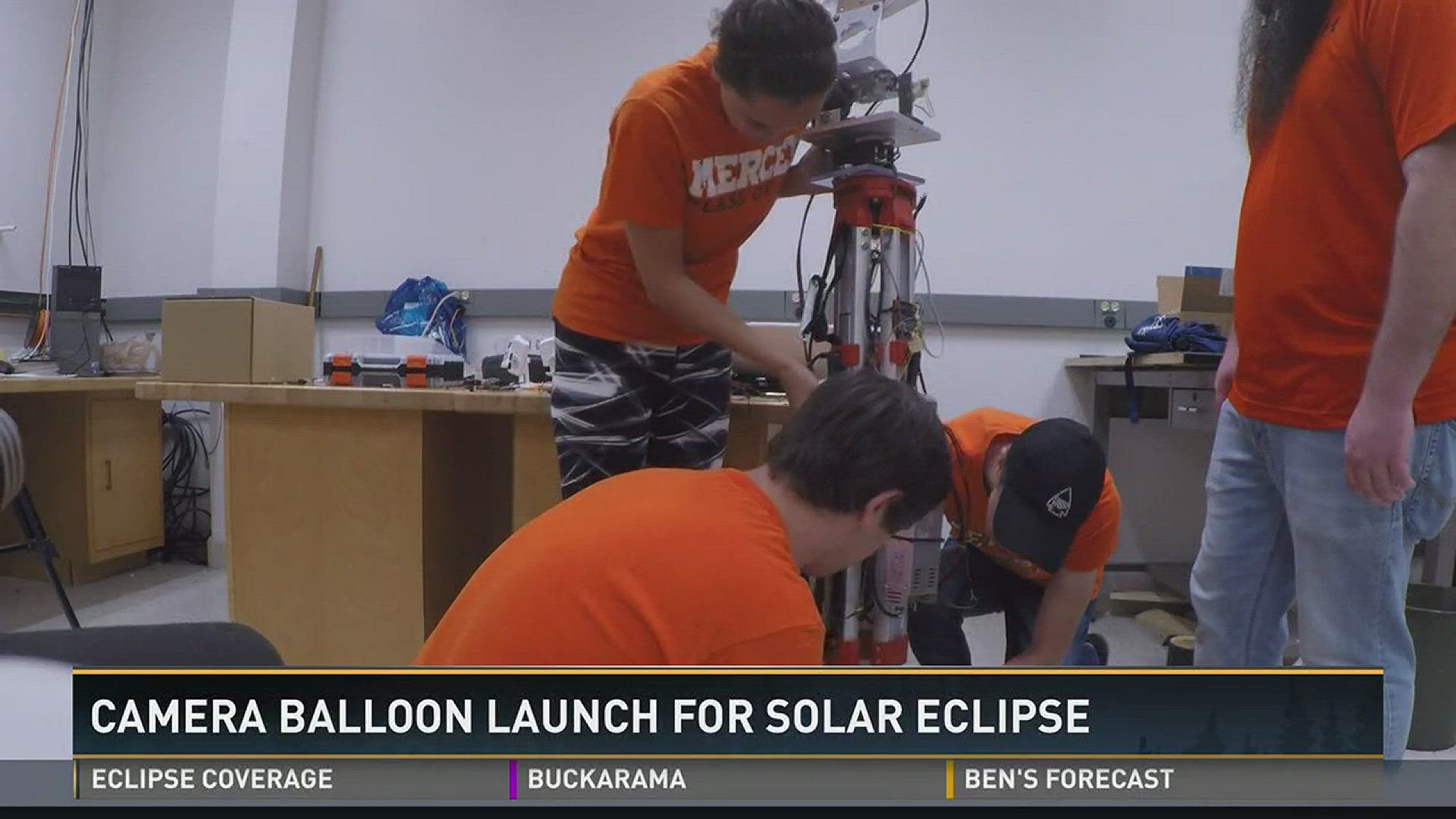With the solar eclipse on Monday everyone is preparing, even the engineering students at Mercer University. They are sending a balloon into space to capture the natural phenomenon.
It has taken a year of work for 23 Mercer University engineering students to prepare their project for the solar eclipse. They will be partnering with NASA to launch a high-altitude balloon from Sunset, South Carolina Monday to get video of the solar eclipse from space.

"We have a payload that attaches to the bottom of it. That payload will have cameras on it. It will also have some antennas to transmit to us. We will have a radar on the ground that can track where our box is in the air,” explains student Kyle Struck.
It is all a part of a project that allows Mercer students to perform experiments at a cheaper price for other schools.
"Students from K-12 and other universities building small experimental packages, sending it to us and then we would launch and collect all the data and then also recover the experiments and return it to them for a very low cost,” says professor Dr. Anthony Choi.
They say after months of coding, testing, and data collection they have only one chance to get it right.
"We don't have a second chance. We can't ask a do over on this type of thing,” says Dr. Choi.
But they say the most important thing to come out of this project will be bringing the space event to children.
"None of us were alive for the last solar eclipse and I'm sure there will be kids that will be too young to get to see it. And getting to see the video they'll be able to understand what it is,” says student Jacob Sokolove.
A sight many people may not get to see until the next solar eclipse in 2024. You can watch a live stream of Mercer's space balloon Monday on NASA’s website. This is the first total eclipse in the continental U-S in 38 years.

